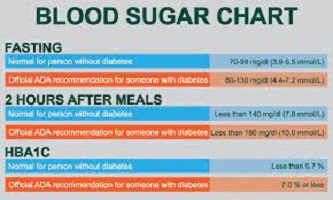Acyclovir for Strep Throat
Acyclovir for Strep Throat
Acyclovir is an antiviral medication primarily used to treat infections caused by herpes viruses, such as cold sores, genital herpes, and shingles.
However, strep throat is a bacterial infection caused by *Streptococcus pyogenes*, not a virus.
Therefore, acyclovir is not effective for treating strep throat.
What is Strep throat?
Strep throat is a bacterial infection that affects the throat and tonsils, caused by the bacterium *Streptococcus pyogenes*, also known as Group A Streptococcus.
It is most common in children but can occur at any age.
Diagnosis
If you have a sore throat that lasts longer than two days, is extremely painful, or shows signs such as white patches or pus at the back of your throat, it’s important to see a doctor.
Additional reasons to seek medical attention include a fine, sandpaper-like pink rash on your skin or difficulty breathing or swallowing.
Your doctor will likely examine your neck and lymph nodes and may perform a throat swab to confirm a strep throat diagnosis.
Strep Throat Treatment
If strep throat is confirmed, your doctor may prescribe antibiotics like penicillin or amoxicillin.
Taking these medications as directed and completing the full course is crucial. Other remedies to help alleviate sore throat symptoms include:
- Acetaminophen or ibuprofen for pain relief
- Warm drinks with lemon and honey, or tea
- Cool liquids or ice blocks to numb the throat
- Marshmallow root
- Slippery elm
- Throat lozenges
- Apple cider vinegar
Acyclovir for Strep Throat: Medications for Strep Throat (Streptococcal Pharyngitis)
Strep throat, or streptococcal pharyngitis, is a bacterial infection caused by *Streptococcus pyogenes* (Group A streptococci).
It is most common in children aged 5 to 15, but rare in children under three.
Strep throat symptoms are typically more severe and longer-lasting than those of viral sore throats.
Common symptoms include:
- Very red and swollen throat and tonsils, sometimes with streaks of pus or red spots on the roof of the mouth
- Swollen and tender lymph nodes in the neck
- Nausea or vomiting, particularly in children
- Headache
- Fever and chills
Home remedies effectiveness?
Home remedies can be effective in providing temporary relief from the symptoms of strep throat, but they do not cure the underlying bacterial infection.
Here’s an overview of the effectiveness of some common home remedies:
- Warm Drinks (Lemon and Honey, Tea)
Effectiveness:
Warm liquids like tea with lemon and honey can soothe a sore throat and reduce irritation.
Honey also has mild antibacterial properties and can help coat the throat, relieving pain and inflammation.
However, this is symptomatic relief and doesn’t address the bacterial cause of strep throat.
- Cool Liquids or Ice Blocks
Effectiveness:
Cold beverages and ice blocks can help numb the throat, reducing pain and inflammation temporarily.
They are particularly soothing for sore throats and can help keep you hydrated, which is important for recovery.
However, like warm drinks, this remedy only alleviates symptoms without treating the infection.
- Throat Lozenges
Effectiveness:
Throat lozenges can soothe the throat by stimulating saliva production, which helps keep the throat moist.
Some lozenges also contain mild anesthetics that can numb the throat and reduce pain. While helpful in managing discomfort, they do not affect the bacterial infection.
- Apple Cider Vinegar
Effectiveness:
Apple cider vinegar has antibacterial properties, and some people use it as a gargle or drink it diluted with water.
However, its effectiveness in treating strep throat is not supported by strong scientific evidence.
It may help in easing symptoms, but it should not replace antibiotics.
- Marshmallow Root
Effectiveness:
Marshmallow root contains mucilage, a gelatinous substance that can coat and soothe the throat, providing relief from irritation.
It is effective in easing sore throat symptoms but does not address bacterial infections.
- Slippery Elm
Effectiveness:
Similar to marshmallow root, slippery elm has mucilage, which forms a soothing film over the throat.
It can help reduce throat pain and discomfort. However, like other home remedies, it does not treat the bacteria causing strep throat.
The Bottom Line
Home remedies can be effective in easing the symptoms of strep throat, such as pain and inflammation, and can make you more comfortable while your body fights the infection.
However, they do not treat the bacterial infection itself. For strep throat, antibiotics prescribed by a doctor are necessary to fully eradicate the bacteria and prevent complications like rheumatic fever or kidney inflammation.
It’s important to use home remedies as a complementary approach alongside prescribed medical treatment.
When to See a Doctor
If you or your child experiences symptoms like a sore throat that lasts longer than two days, severe pain, fever, or difficulty swallowing, it’s important to see a healthcare provider.
Early diagnosis and treatment can help prevent complications and speed up recovery.



